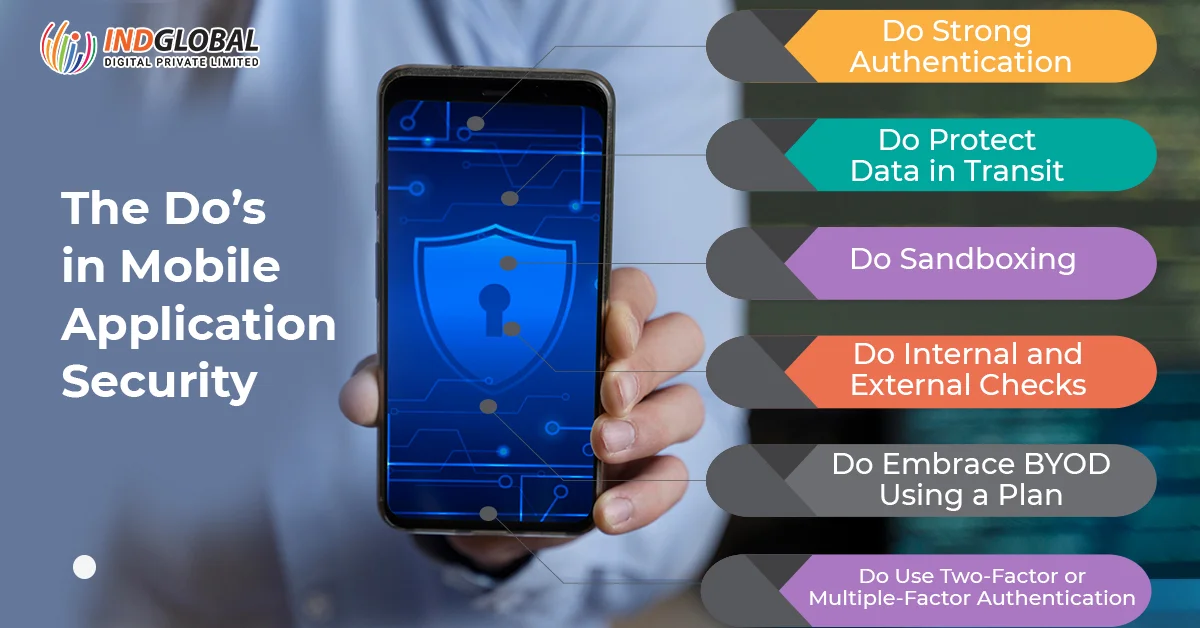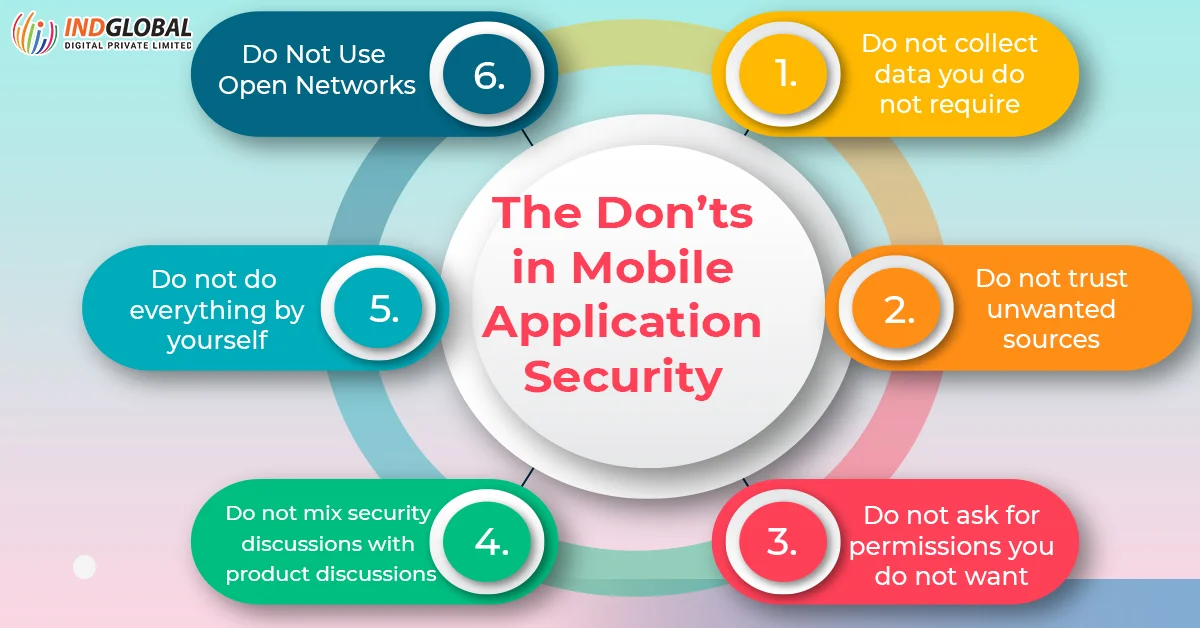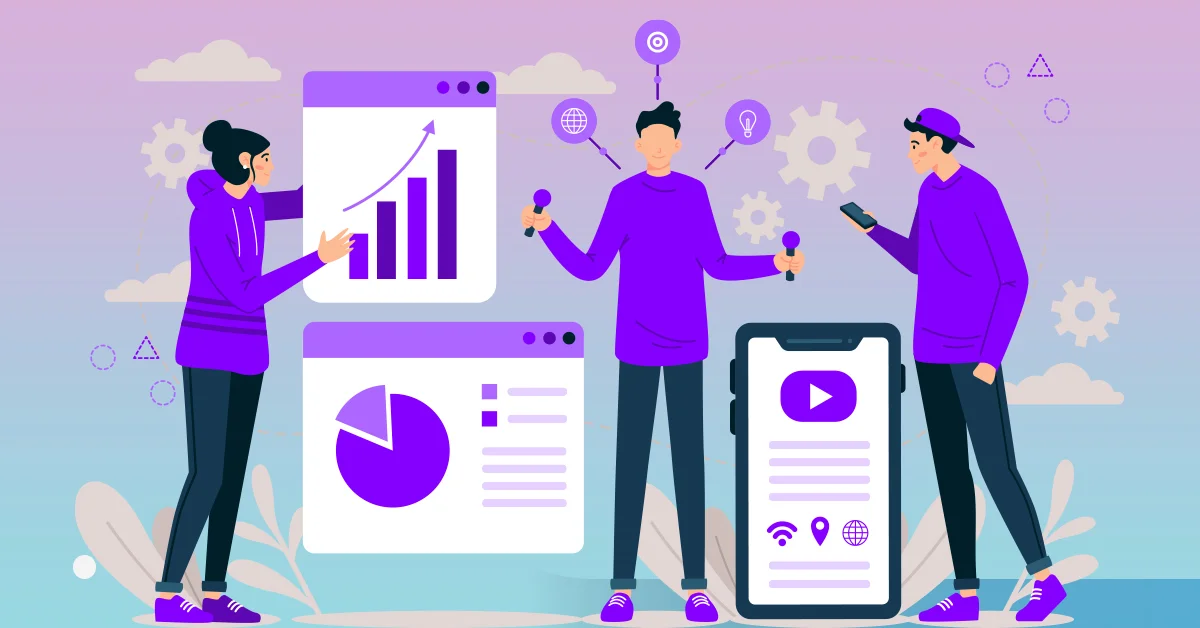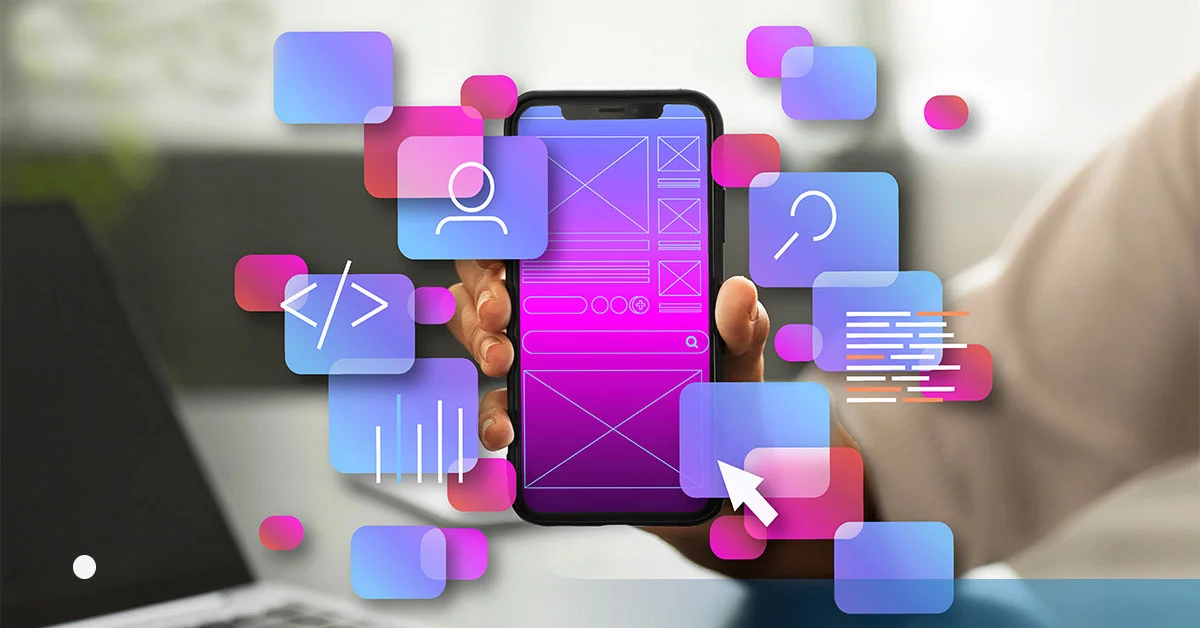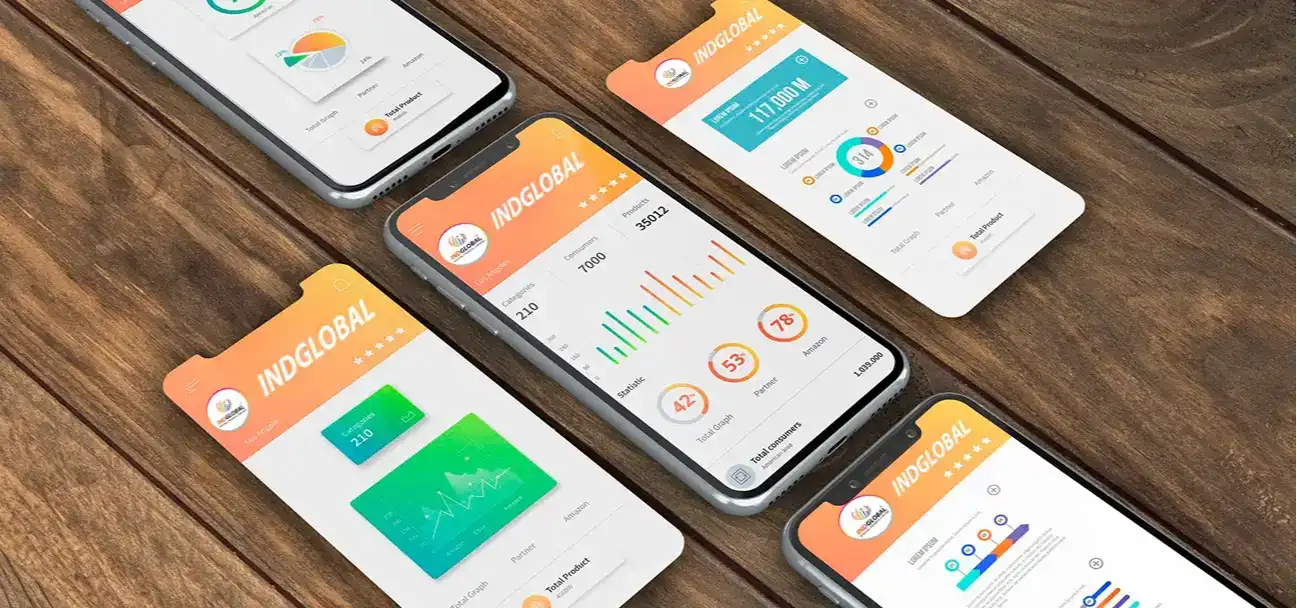Mobile devices have become one of the most widely used technologies in the past several years around the world. The rise of smartphones and tablets has made mobile devices a crucial part of our daily lives. According to Statista, there are around 6.4 billion mobile phone users globally and this number will reach over 7 billion by the end of 2024.
Mobile devices are very popular because they are convenient and portable and also offer a huge range of functionalities and features. This made us think that mobile devices are all ‘ours’ by trusting their performance and not considering what is happening in the background. We never think of our mobile devices being hacked, tracked, or monitored like any other technology and also do not focus on mobile security practices that they must follow to protect and maintain their data.
Also, mobile devices have personal information about their users such as their location, usage, and biometric data to personalize their experiences and optimize services. This collection of data and reporting creates a huge vulnerability to viruses. And, the increasing mobile device usage for work without any management can bring the user, organization, and data at risk which can be life-threatening.
Therefore, mobile security plays an important role in offering mission-oriented solutions. But, security in mobile phones plays an important role in offering mission-oriented solutions. But, as security of mobile phones is an essential part of the hardware design, not understanding the risks can bring issues in the security features of mobile devices.
So, to understand and maintain the security protocols and reduce the attacks, our mobile app service providers in Bangalore are here with some of the do’s and don’ts to keep in mind to secure your mobile devices. Read them further and understand why it has become necessary to keep all portable devices secure, whether it is your mobile phone, tablet, or laptop.
The Do’s in Mobile Application Security
1. Do Strong Authentication
Before any user or employee of your organization connects with your corporate mobile applications, make sure that you have set a strong layer of authentication with clear ID access. Let them provide the right information to get access to your mobile app on their device. If you have any type of corporate or other user’s data, then secure the data, server, and application.
2. Do Protect Data in Transit
It is very important to protect data that is in transit or even the data at rest from getting stolen or snooped. Several business organizations depend only on network, security, and encryption technologies to keep their data safe. But everything has to be secured from creation to transfer to the usage of the data. Every single channel where the data goes should also be protected.
3. Do Sandboxing
Sandboxing is used to isolate data applications and code execution from different applications when you build and test apps. The sandboxing process is used to execute unidentified and untested programs from unverified, suppliers, users, third parties, and websites without harming the host machine or operating system.
4. Do Internal and External Checks
Every business needs to have some internal security checks and practices. With internal checks, they should also use various external security practices to ensure safe security for the business. In today’s time, there are several suppliers to provide every kind of security, be it network, data, or apps. Make it a habit to have connections with external vendors to perform different things and help develop safe chances. You can select what works best according to your budget.
5. Do Embrace BYOD Using a Plan
BYOD means bringing a device that lets employees use their mobile phones for work. This strategy has gained a lot of popularity, especially in small business firms. This method reduces business costs, increases productivity, and allows employees to work with their familiar devices. But to use a BYOD strategy, there should be a proper plan. Make sure to use a BYOD policy that educates the employees about best practices to secure and protect mobile devices.
6. Do Use Two-Factor or Multiple-Factor Authentication
Whenever it is possible, use two-factor authentication, especially when you are connecting your business to any social media account. This way you can be easily notified when any new login is made from another device. Also, verify that the two-factor authentication is maintained on both corporate and private mobile devices. This will also ensure your employees can access office systems safely.
Two-factor authentication also helps in maintaining a good relationship between the clients and the business by satisfying that they are speaking with a trusted recipient rather than a stranger.
The Don’ts in Mobile Application Security
1. Do not collect data you do not require
There is no need to collect unnecessary data that you do not need. There is no need to collect unnecessary data that you do not require. We have seen a lot of business organizations collecting data as much as possible. Businesses collect all kinds of data without having a plan of what to do with it and this leads to huge risk.
You might believe that it is like digging a gold mine, but you are only bringing more trouble for your company. So, it is better to collect data that is required and ensure the best security practices for it.
2. Do not trust unwanted sources
For a business owner, it is hard to believe that all content that they have is from a trusted source. But various mobile applications validate online payment by only checking the SSL certificate. But it is essential to dive more and also check the source of the SSL certificate, know about its validity, and approve it. Like this, there are various types of data where it is necessary to double-check the content and source. Hence, not creating any blind trust and asking typical questions is one of the best things for great mobile app security.
3. Do not ask for permissions you do not want
Multiple businesses that use mobile applications often ask users for permissions they do not require. This can risk your mobile application as if it is not properly secured, the data will be used by other malicious apps on the user’s mobile phones. So, it is an essential practice in the security of mobile applications to make sure that you do not ask for permissions that are of no use.
4. Do not mix security discussions with product discussions
It is one of the biggest mistakes that a business organization makes. It is recommended that business owners avoid talking about security reviews when they are brainstorming on your product. The development of the product and its release is crucial to running the business effectively. And when this is done, you can ask yourself if it is secure or not. It is necessary to engage in both discussions but choosing a path that considers both factors is the right choice.
So, if you are also stuck in these discussions, then you can seek help from our team at the best mobile app development company in Bangalore. Connect with them and they are always available to help you in every possible way.
5. Do not do everything by yourself
This is one of the biggest don’ts that you might consider to secure your mobile app. There are a lot of product and service providers that can easily support your business as they have the right experience and expertise that they have built in the past several years.
If you try to do everything by yourself, you will not only lose money and time, but you will end up not doing the ideal job. Therefore, understand that you are running your business to achieve a desired goal, so get connected with onboard partners to support your work.
6. Do Not Use Open Networks
It is always recommended for a business to not use open WiFi networks but rather use a VPN connection to encrypt the data. When you use a personal device to access the work account, the user’s very secure connection as the mobile device can be hacked more easily than the work device.
VPN connections are mostly used by people working from home as they can easily protect the devices of remote workers. So, why not try them at the offices to work safely without any hazardous issues?
Conclusion
There is no doubt that mobile applications have created a world of convenience for all of us. But, several mobile applications can harm our personal, medical, and financial information by providing them to hackers. And, if the mobile developers who are known as the guardians of applications do not assess the security risks, then things can go worse in the business.
A mobile app developer should understand all the critical norms of mobile application security and try to change the tactics of the actors and how hard they try. The business must know the threats before the hackers get to know your data.
Still, confused about how to secure your mobile application, you are left with one choice which is to meet the most skilled and professional mobile app developers in Bangalore to help you in securing the app from malicious activities.
Next Post ←
Top 10 Tools for Mobile App Development
RELATED ARTICLES
Request a quote or Talk to an expert
We guarantee a response in 6 hours or less. And the best bang for your buck.




